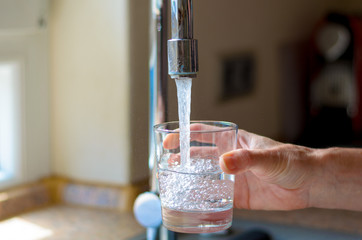
Can Chemicals in Tap Water Affect My Health—And Should I Filter It?
Understanding Tap Water Quality
Tap water is a vital resource, but it can contain various chemicals that may impact your health. These chemicals can originate from agricultural runoff, industrial discharges, and aging infrastructure. Understanding what’s in your tap water is crucial for making informed decisions about your health.
Common Chemicals Found in Tap Water
Some of the most common contaminants include:
- Chlorine: Used to disinfect water, chlorine can cause respiratory issues and skin irritation.
- Lead: Often leached from old pipes, lead exposure can lead to serious health problems, especially in children.
- Pesticides: Agricultural runoff can introduce harmful pesticides into drinking water, posing risks to health.
- Fluoride: While beneficial for dental health, excessive fluoride can lead to dental fluorosis and other health concerns.
Health Implications of Contaminated Water
Long-term exposure to contaminated tap water can lead to various health issues, including:
- Neurological problems from lead exposure.
- Increased risk of cancer from certain chemicals.
- Digestive issues from harmful bacteria or parasites.
Should You Filter Your Tap Water?
Filtering your tap water can significantly reduce the presence of harmful chemicals. Here are some benefits of using a water filter:
- Improved Taste and Odor: Filters can remove chlorine and other chemicals that affect taste.
- Healthier Drinking Water: A good filter can eliminate contaminants, making your water safer.
- Cost-Effective: Investing in a water filter can save money compared to buying bottled water.
Upgrade Your Water Quality with Bluewater Kitchen Station
Consider enhancing your water quality with the Bluewater Kitchen Station. This innovative filtration system ensures that you have access to clean, safe drinking water right from your tap.
For more details, visit our website or contact us at sales@bluewatergroup.com.